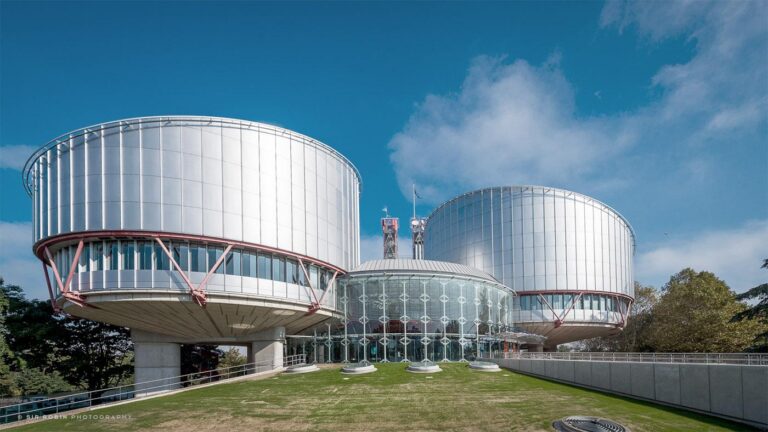The European Court has delivered a landmark ruling concluding that Russia committed multiple violations of international law in Ukraine and was directly responsible for the downing of Malaysia Airlines Flight MH17 in 2014. The decision marks a significant development in the ongoing legal and diplomatic fallout from the conflict in eastern Ukraine, where the tragedy claimed 298 lives. This ruling not only reinforces Russia’s accountability but also sets a precedent for future actions aimed at justice and reparations for the victims and their families.
European Court Issues Landmark Ruling Holding Russia Accountable for MH17 Tragedy
The European Court of Human Rights has delivered a decisive judgment, holding Russia legally responsible for multiple violations connected to its actions in Ukraine, including the catastrophic downing of Malaysia Airlines Flight MH17 in 2014. The ruling emphasizes Russia’s direct involvement with separatist forces in eastern Ukraine, marking a pivotal moment in international accountability efforts. The Court cited extensive evidence demonstrating that the missile system used to bring down the aircraft was supplied and operated under Russian control, resulting in the tragic loss of 298 lives.
The judgment outlines several key findings:
- Violation of the right to life: The Court found Russia accountable for failing to protect civilians both on the ground and in the airspace.
- Illegal military aggression: Confirming Russia’s support for separatist militants destabilizing eastern Ukraine.
- International law breaches: Recognizing the harm caused to multiple nations and the families of MH17 victims.
| Aspect | Finding |
|---|---|
| Missile System | Originated from Russian military units |
| Casualties | 298 passengers and crew lost |
| Legal Basis | Violation of European Convention on Human Rights |
| Accountability | Russia held responsible for direct and indirect acts |
Detailed Evidence Reveals Extent of Russian Violations in Ukraine Conflict
The European court’s latest findings provide a comprehensive overview of the extensive violations committed by Russian forces during the ongoing Ukraine conflict. Leveraging satellite imagery, intercepted communications, and on-the-ground witness testimonies, investigators have mapped a clear pattern of intentional military aggression and breaches of international law. Key violations include targeted attacks on civilian infrastructure, unlawful detentions, and the use of prohibited weaponry in densely populated areas. This body of evidence not only underscores the scale of human suffering but also emphasizes Russia’s direct engagement in systematically undermining Ukraine’s sovereignty.
Among the most significant outcomes is the firm determination of Russia’s involvement in the tragic downing of Flight MH17, which resulted in the loss of 298 lives. The court presented data confirming the launch came from a Russian-supplied missile system operated by pro-Russian separatists in Eastern Ukraine. Below is a summary of incident details substantiated by the investigation:
| Aspect | Evidence Type | Verification Method |
|---|---|---|
| Missile Trajectory | Satellite Tracking | Cross-checked with ground radar data |
| Weapon Origin | Military Supply Records | Tracing logistics chains |
| Command Chain | Intercepted Communications | Verified by independent analysts |
- Confirmed violation categories: war crimes, indiscriminate attacks, and civilian endangerment
- International collaboration: Dutch, Belgian, and Australian authorities actively contributed
- Legal implications: Opens door for increased accountability measures against Russian officials
Calls for Enhanced International Sanctions and Strengthened Aviation Security Measures
In the wake of the court’s latest ruling confirming Russia’s involvement in the downing of Flight MH17, international leaders and security experts are intensifying calls for robust punitive measures and tighter aviation safeguards. Governments and global institutions are urged to adopt more stringent sanctions targeting the responsible actors, aiming to increase diplomatic and economic pressure on Moscow. These steps are seen as essential not only to secure justice for the victims and their families but also to deter future violations of international law in conflict zones.
Parallel to sanctions, experts emphasize the critical need to enhance aviation security protocols globally. Recommendations include:
- Improved radar tracking and real-time data sharing among civilian and military agencies.
- Mandatory no-fly zones over active conflict regions enforced through international cooperation.
- Stronger aircraft defense mechanisms against surface-to-air threats.
- Regularly updated risk assessments with direct input from geopolitical intelligence sources.
| Sanction Type | Key Target | Expected Impact |
|---|---|---|
| Economic | Russian banks & energy firms | Limit funding for military operations |
| Diplomatic | High-ranking officials | Isolate Russia politically |
| Travel bans | Individuals linked to MH17 attack | Restrict international movement |
Insights and Conclusions
The ruling by the European court marks a significant development in holding Russia accountable for its role in the conflict in Ukraine and the tragic downing of Flight MH17. As legal proceedings continue, the judgment underscores the international community’s resolve to seek justice for the victims and reinforces the ongoing scrutiny of Russia’s actions in the region. The case remains a pivotal moment in the broader effort to address violations of international law amid the ongoing tensions in Eastern Europe.




